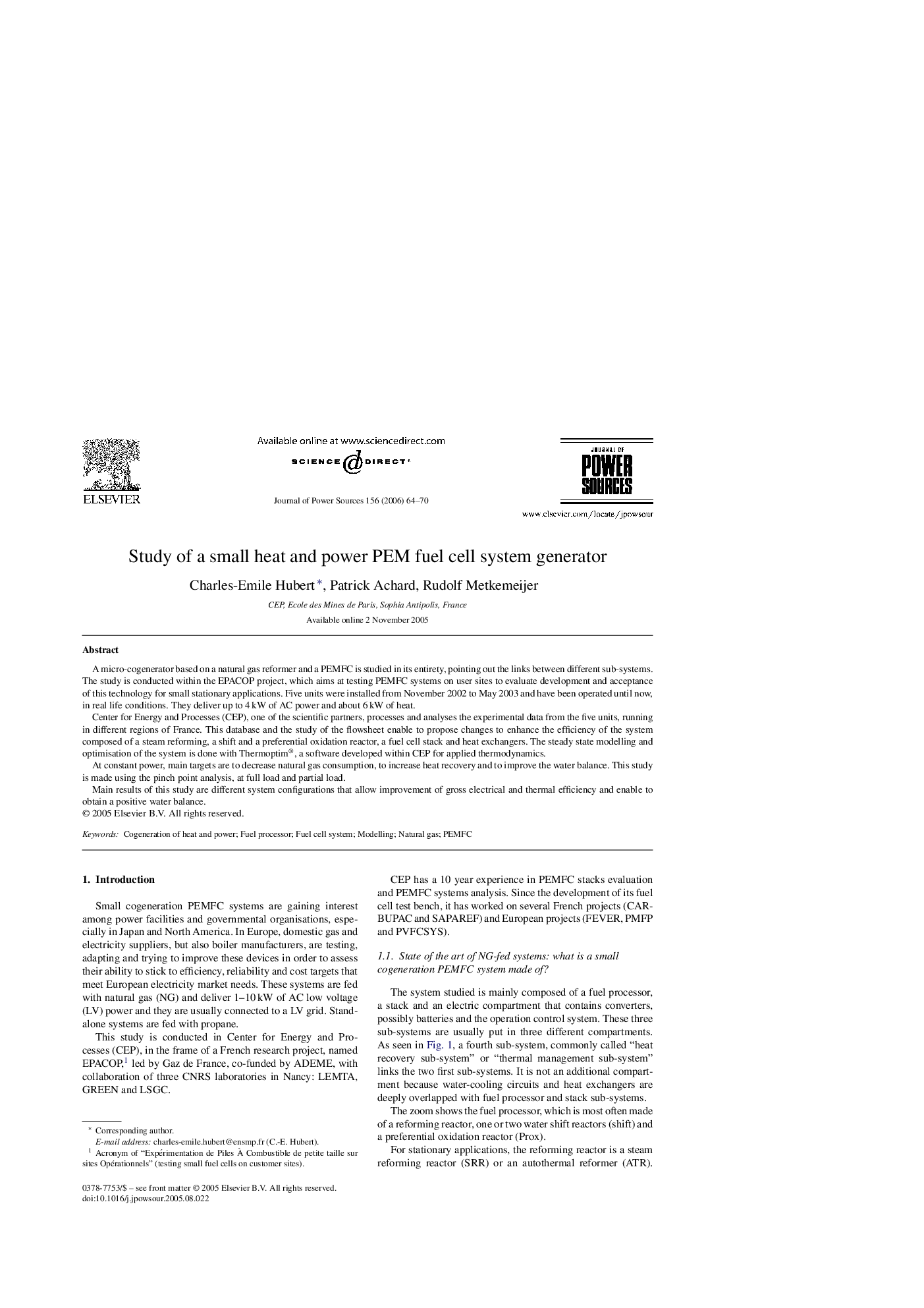| Article ID | Journal | Published Year | Pages | File Type |
|---|---|---|---|---|
| 1291293 | Journal of Power Sources | 2006 | 7 Pages |
A micro-cogenerator based on a natural gas reformer and a PEMFC is studied in its entirety, pointing out the links between different sub-systems. The study is conducted within the EPACOP project, which aims at testing PEMFC systems on user sites to evaluate development and acceptance of this technology for small stationary applications. Five units were installed from November 2002 to May 2003 and have been operated until now, in real life conditions. They deliver up to 4 kW of AC power and about 6 kW of heat.Center for Energy and Processes (CEP), one of the scientific partners, processes and analyses the experimental data from the five units, running in different regions of France. This database and the study of the flowsheet enable to propose changes to enhance the efficiency of the system composed of a steam reforming, a shift and a preferential oxidation reactor, a fuel cell stack and heat exchangers. The steady state modelling and optimisation of the system is done with Thermoptim®, a software developed within CEP for applied thermodynamics.At constant power, main targets are to decrease natural gas consumption, to increase heat recovery and to improve the water balance. This study is made using the pinch point analysis, at full load and partial load.Main results of this study are different system configurations that allow improvement of gross electrical and thermal efficiency and enable to obtain a positive water balance.
